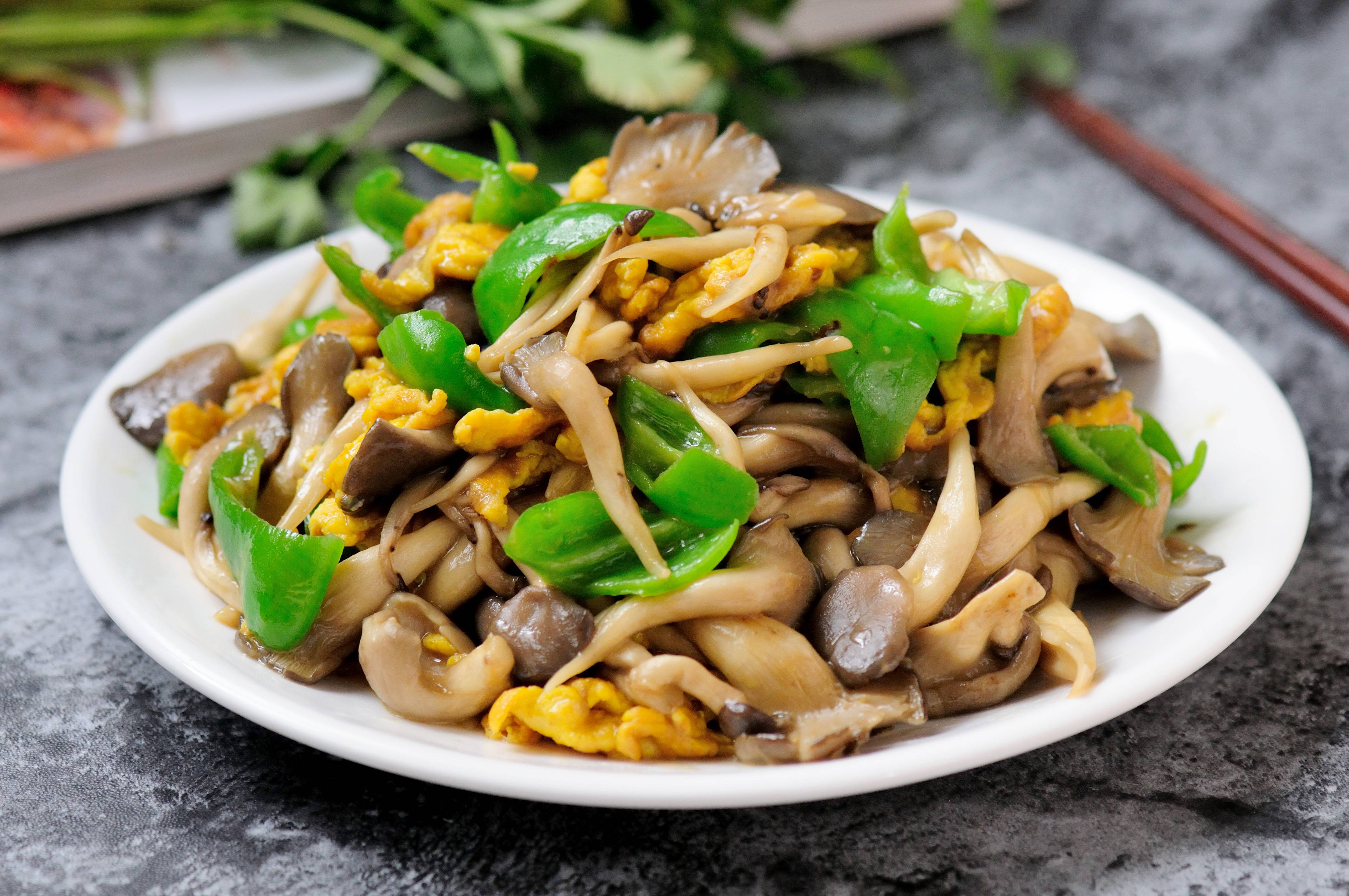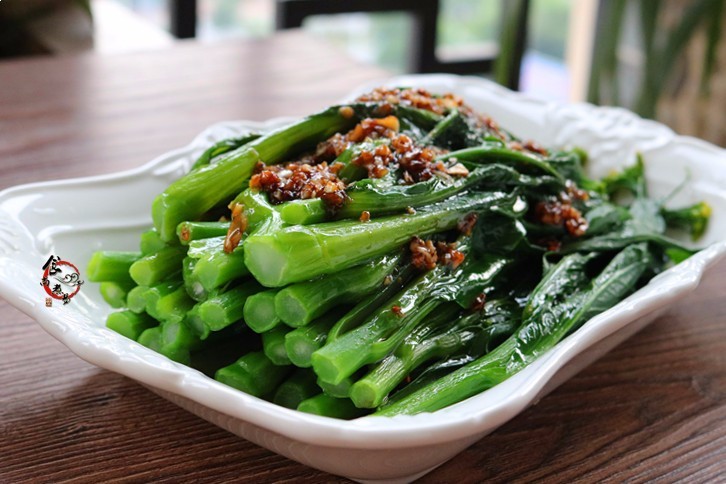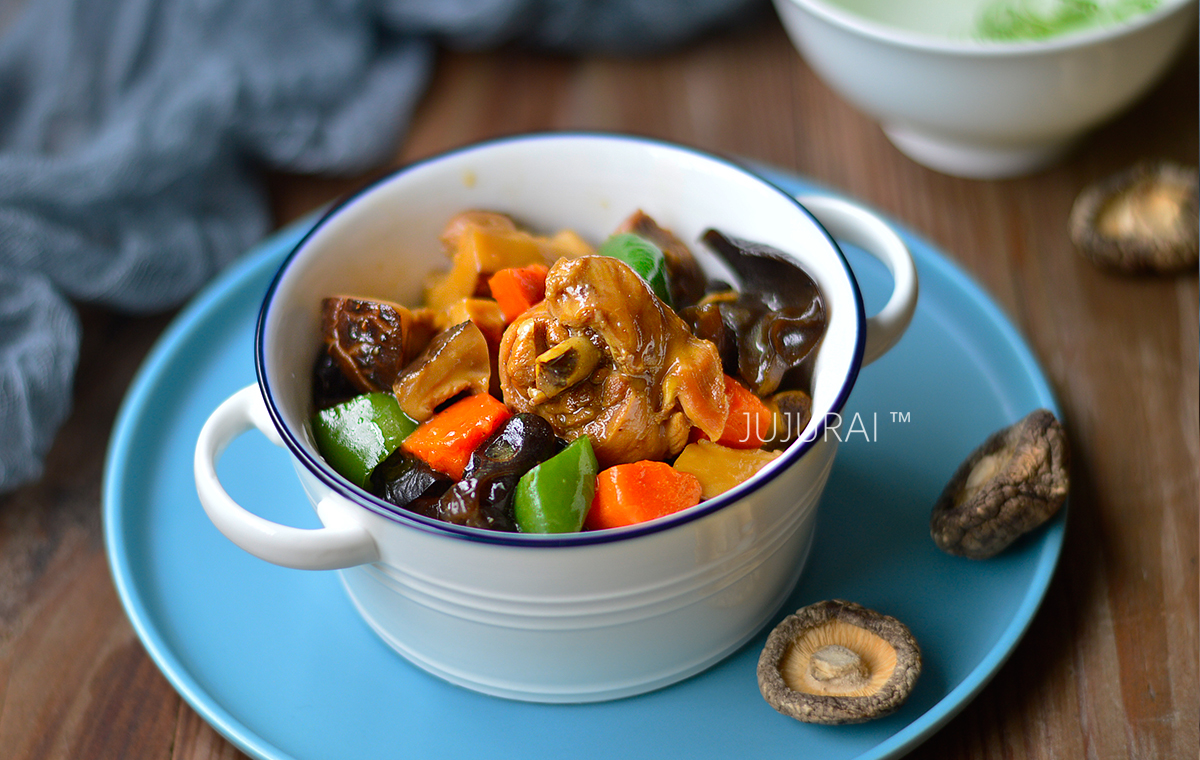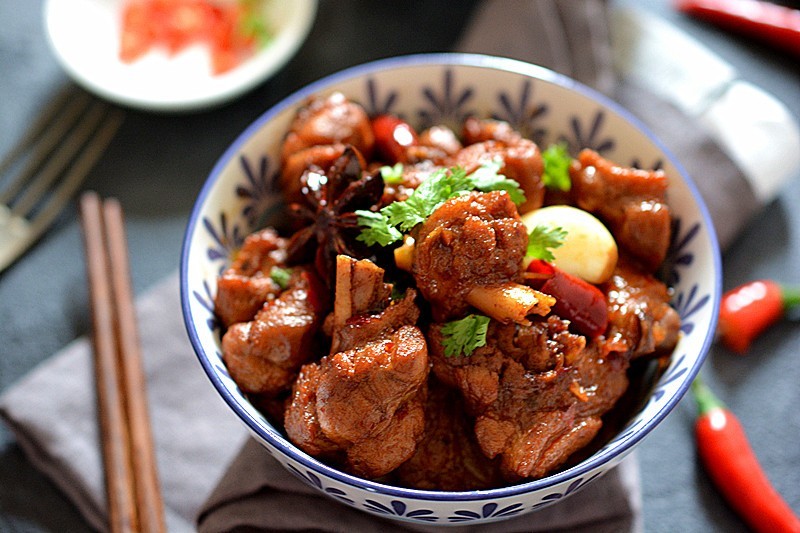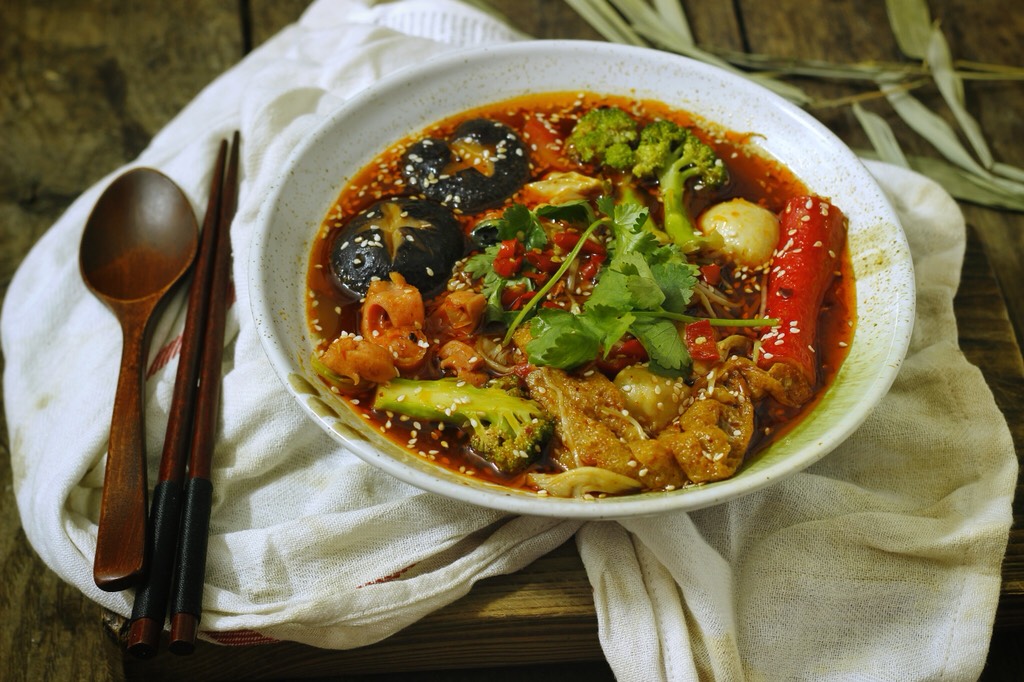Asparagus Egg Rolls
| Eggs 2 | Asparagus 2 roots |
| Salt Appropriate amount | Oil Appropriate amount |
| Ketchup Appropriate amount |
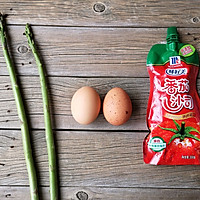
Step 1
Prepare ingredients.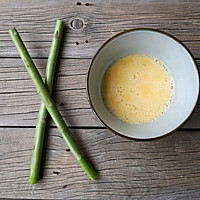
Step 2
Remove the old stems and old skin of the asparagus, wash it, add an appropriate amount of salt and beat the eggs into egg liquid.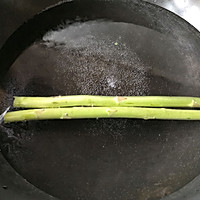
Step 3
Blanch asparagus in boiling water for 2-3 minutes. There are two reasons why asparagus needs to be blanched: First, this cooking method can retain the vitamins in asparagus to the maximum extent and avoid a large loss of nutrients. The blanched asparagus has a bright color and a crisp and tender texture. Second, because asparagus contains oxalic acid, it easily combines with calcium after entering the human blood to form calcium oxalate. Blanching can remove most of the oxalic acid, making it safer to eat.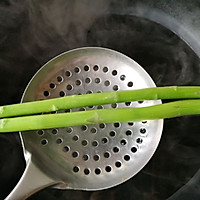
Step 4
Drain the blanched asparagus and set aside.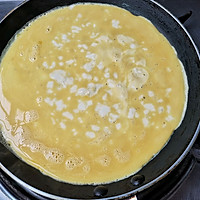
Step 5
Preheat a flat-bottomed non-stick pan, pour some of the egg liquid, shake evenly, and lower the heat until almost solidified. (The non-stick pan I used did not put any oil. When cooking at home, you can choose to brush it with oil or not according to the condition of your own pan)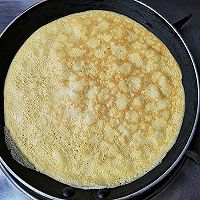
Step 6
Flip and heat for half a minute until the egg mixture on the other side solidifies.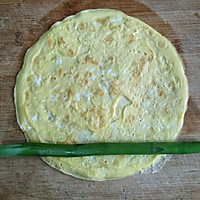
Step 7
Take out the egg skin and place the asparagus on one end of the egg skin so that it can be easily rolled into a roll.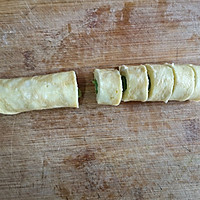
Step 8
Roll up tightly and cut into even pieces.
Step 9
Use two small pieces of toothpick to skewer.
Step 10
After putting it on the plate, add an appropriate amount of tomato sauce or sweet noodle sauce and hot sauce according to your personal taste.
Step 11
Finished product.
Step 12
Serve.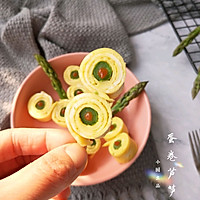
Step 13
Come on, open your mouth. Cooking Tips for Asparagus Egg RollsThere are two reasons why asparagus needs to be blanched:
First, this cooking method can retain the vitamins in asparagus to the maximum extent and avoid a large loss of nutrients. The blanched asparagus has a bright color and a crisp and tender texture.
Second, because asparagus contains oxalic acid, it easily combines with calcium after entering the human blood to form calcium oxalate. Blanching can remove most of the oxalic acid, making it safer to eat.





